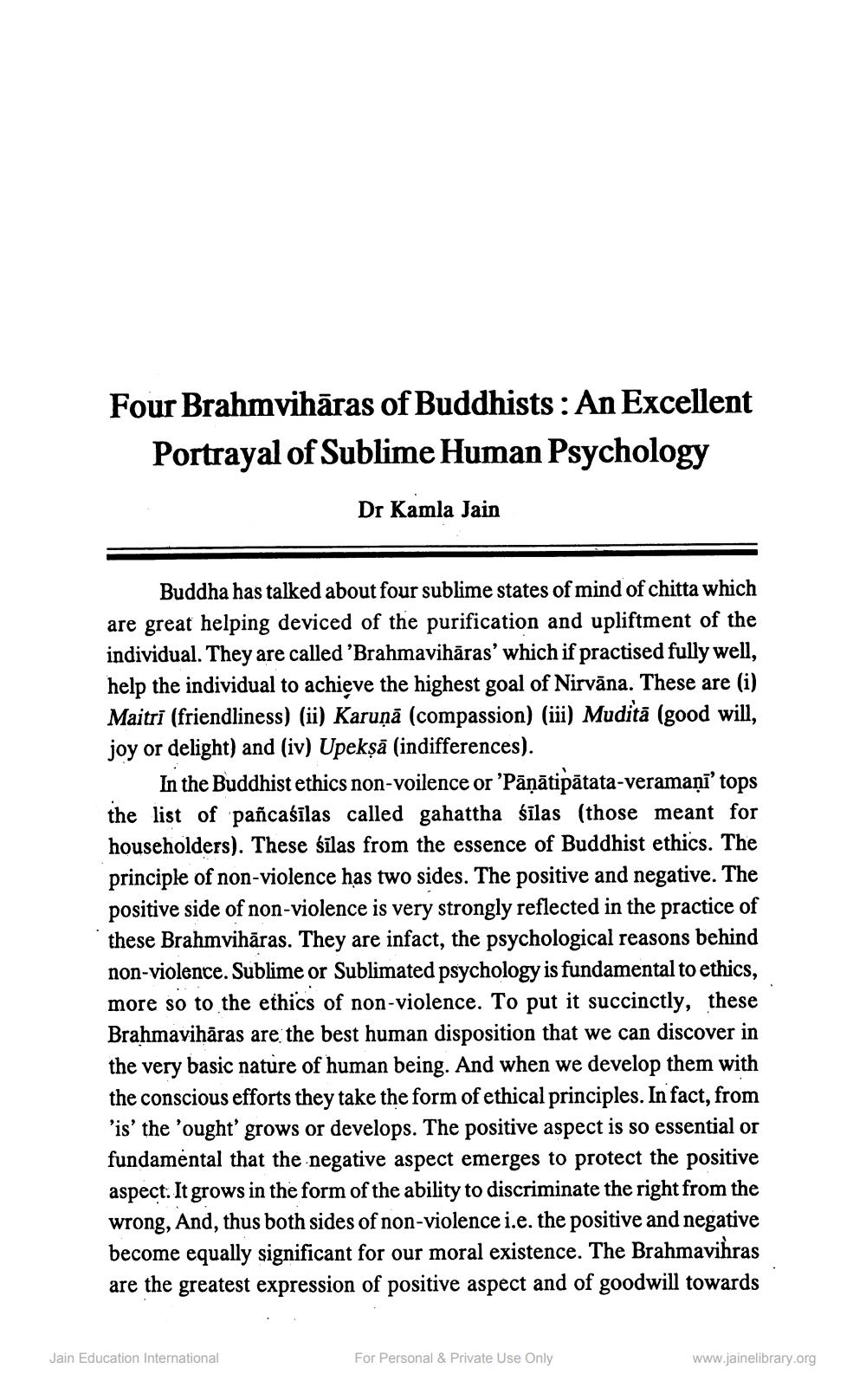________________
Four Brahmvihāras of Buddhists: An Excellent Portrayal of Sublime Human Psychology
Dr Kamla Jain
Buddha has talked about four sublime states of mind of chitta which are great helping deviced of the purification and upliftment of the individual. They are called 'Brahmavihāras' which if practised fully well, help the individual to achieve the highest goal of Nirvāna. These are (i) Maitri (friendliness) (ii) Karuņā (compassion) (iii) Muditā (good will, joy or delight) and (iv) Upekṣā (indifferences).
In the Buddhist ethics non-voilence or ’Pāņātipātata-veramanī' tops the list of pañcaśīlas called gahattha śīlas (those meant for householders). These śīlas from the essence of Buddhist ethics. The principle of non-violence has two sides. The positive and negative. The positive side of non-violence is very strongly reflected in the practice of these Brahmvihāras. They are infact, the psychological reasons behind non-violence. Sublime or Sublimated psychology is fundamental to ethics, more so to the ethics of non-violence. To put it succinctly, these Brahmavihāras are the best human disposition that we can discover in the very basic nature of human being. And when we develop them with the conscious efforts they take the form of ethical principles. In fact, from 'is' the 'ought grows or develops. The positive aspect is so essential or fundamental that the negative aspect emerges to protect the positive aspect. It grows in the form of the ability to discriminate the right from the wrong, And, thus both sides of non-violence i.e. the positive and negative become equally significant for our moral existence. The Brahmavihras are the greatest expression of positive aspect and of goodwill towards
Jain Education International
For Personal & Private Use Only
www.jainelibrary.org




